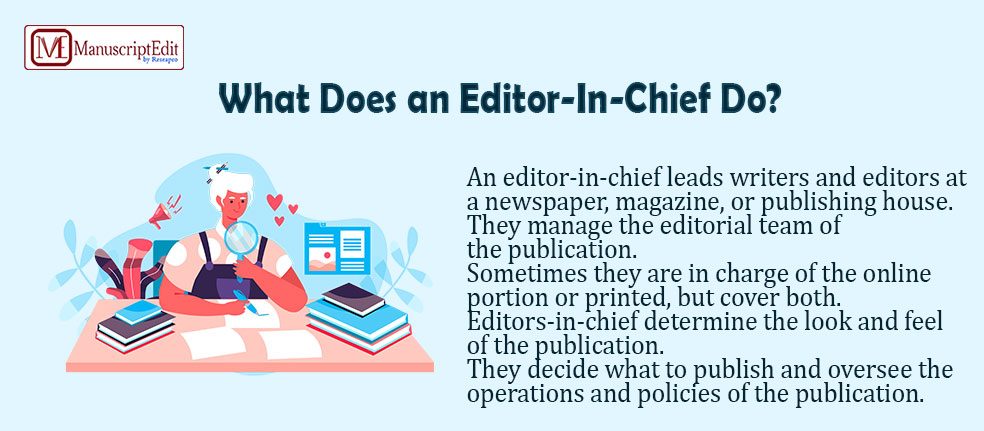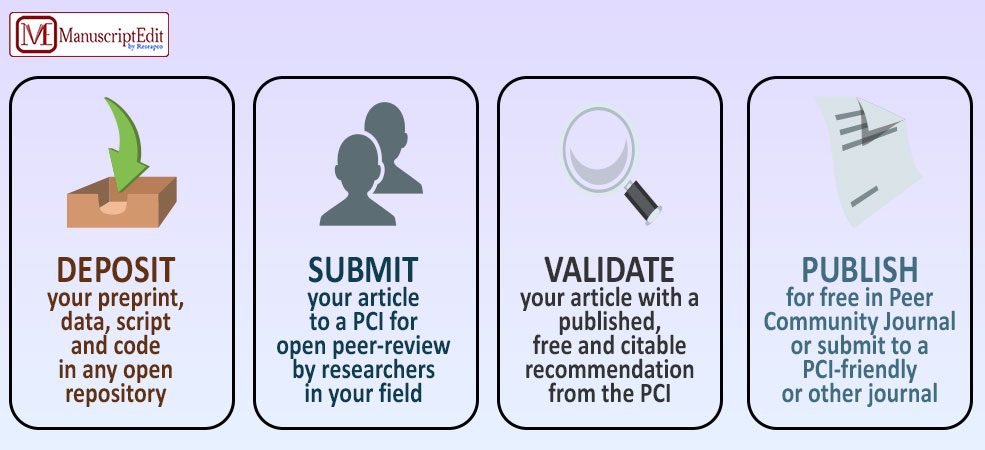|
Getting your Trinity Audio player ready...
|

Scientific publishing is vital to advancing science and is necessary for the worldwide dissemination of new concepts and findings.
In this context, the editorial roles of scientific publishers are essential because they ensure the shared research is original, trustworthy, and understandable.
They maintain the standards and integrity of the scientific discourse as they guide a manuscript through submission to publication.
What is the Role of the Editor in Publishing?
Editorial responsibilities in scientific publishing are as follows:
- They are in charge of supervising the peer review procedure. They decide whether to approve or reject manuscripts based on their applicability, uniqueness, and validity.
- Editors ensure that manuscripts follow moral standards, are original, and contribute substantially to the subject.
- Editors supervise peer reviewers’ comments and assist writers with their edits, upholding the norms of scientific publication and research. Their contributions to developing a robust and reliable corpus of scientific literature, knowledge transfer, and scientific advancement are vital.
What is the Role of Science Editor?
Reviewing and assessing scientific submissions requires specialized knowledge and abilities, which science editors possess. They provide precision, transparency, and conformity to scientific norms, enabling efficient dissemination of research outcomes.
Editors assist writers in polishing their work, ensuring style and formatting coherence, and fixing errors. Science editors are vital in developing high-quality scientific publications and increasing information dissemination using their subject matter and linguistic experience.

What do Editors do in Academic Publishing?
- In academic publishing, editors manage the peer review to guarantee thorough examination and assess articles’ quality and relevancy.
- They improve uniformity and clarity by offering text editing and proofreading services.
- In addition, editors uphold moral principles by identifying and resolving problems such as data fabrication and plagiarism.
- To maintain the integrity of scholarly works and encourage information sharing within academic communities, the editor’s role in scholarly journals is ultimately responsible for choosing, revising, and keeping these works.
Editorial Decision-Making in Scientific Journals
Editors of scientific journals carefully weigh relevance and rigour in their judgements. They evaluate each proposal based on its scientific merit, originality, and methodological soundness to ensure the research is solid, repeatable, and adds new knowledge. Essential considerations also include the journal’s scope and possible field influence.
Editors endeavour to choose research that not only passes muster but also tackles important issues and broadens knowledge, striking a balance between these factors—the scientific community benefits from this meticulous curation, which stimulates lively discussion and advances theory and practice.

Conclusion
Editors protect the integrity of science by carefully vetting and promoting the advancement of knowledge. Their commitment guarantees the calibre and dependability of published research, which is essential for the progress of science. Technological developments may change editorial positions by providing new resources for accuracy and efficiency. However, editors’ personal touch and judgement will always be valuable in shaping the changing field of scientific publishing in an organized and wise manner.
References
- https://www.councilscienceeditors.org/index.php?option=com_content&view=article&id=103:2-1-editor-roles-and-responsibilities&catid=20:site-content#:~:text=Editors%20are%20responsible%20for%20monitoring,method%20to%20ensure%20manuscript%20quality.
- https://www.linkedin.com/pulse/role-editors-publishing-process-leon-herrera
- https://royalsociety.org/blog/2023/03/whos-who-stem-publishing/



